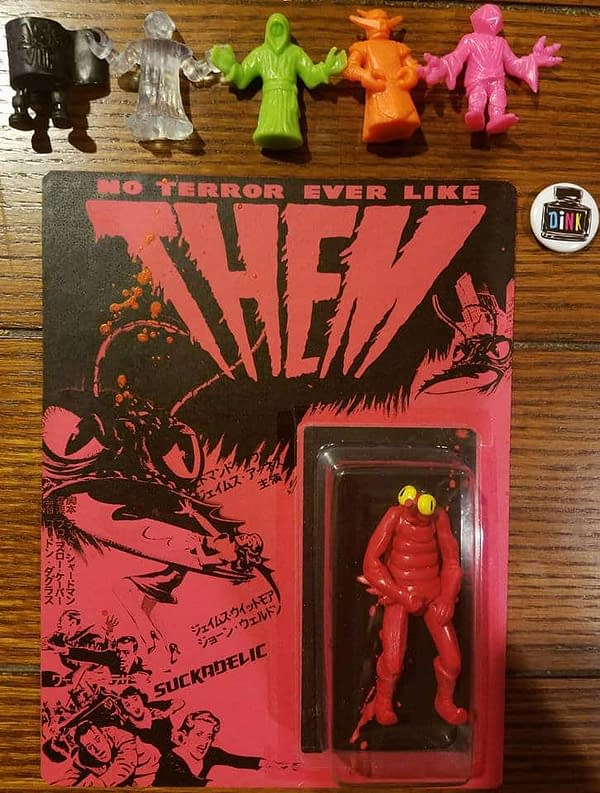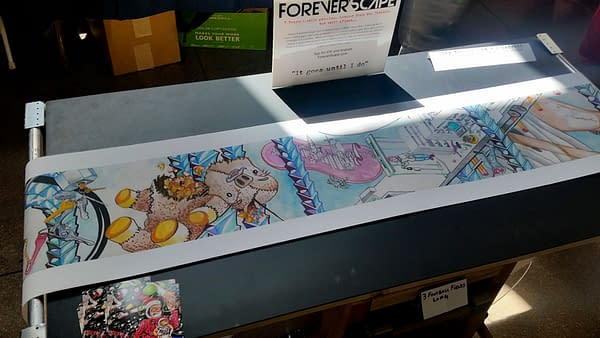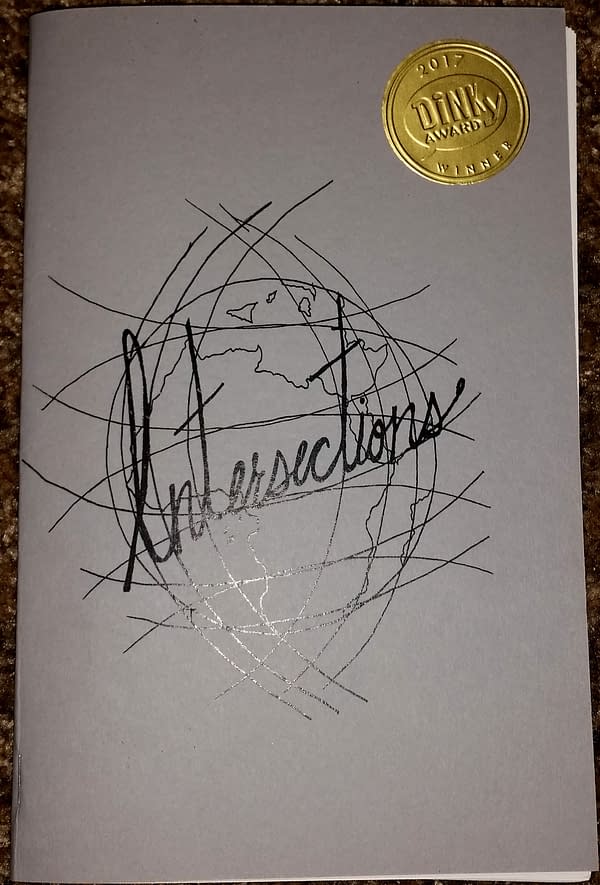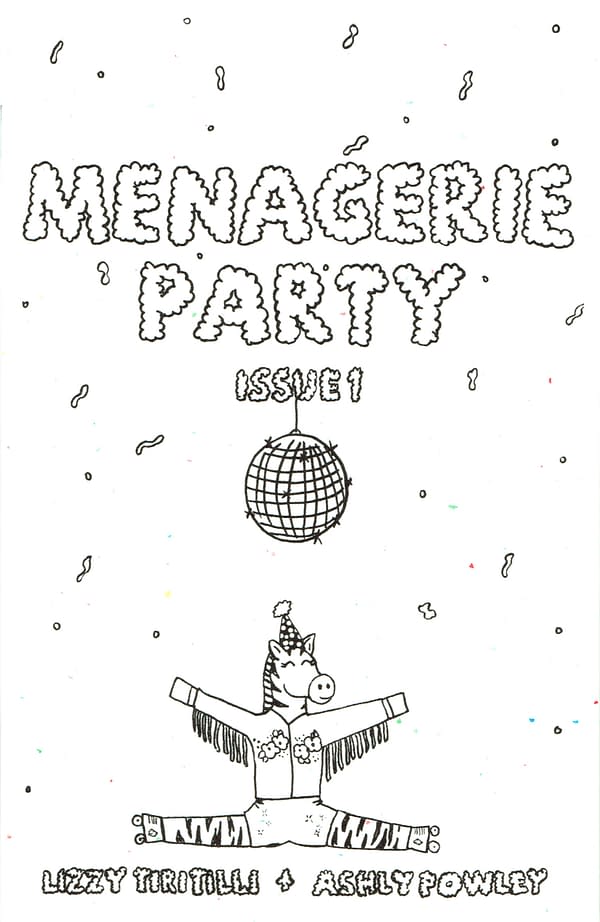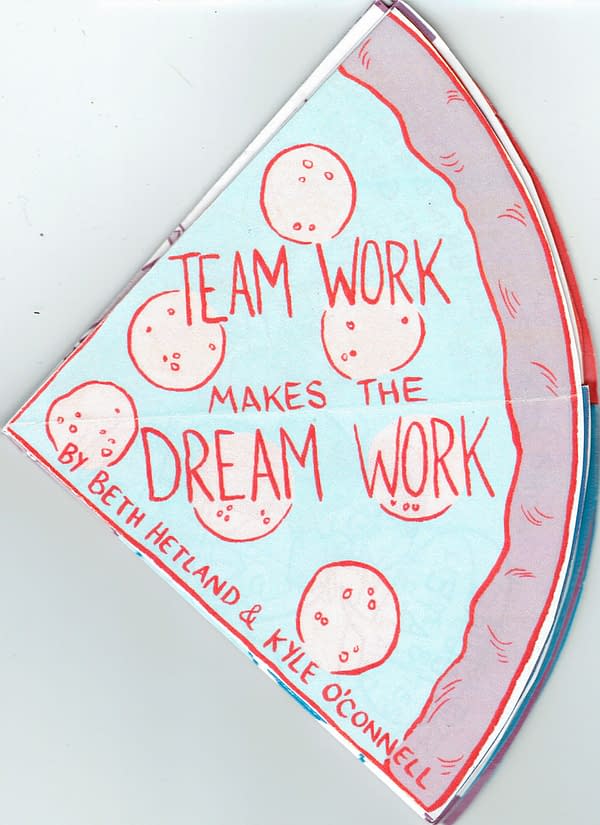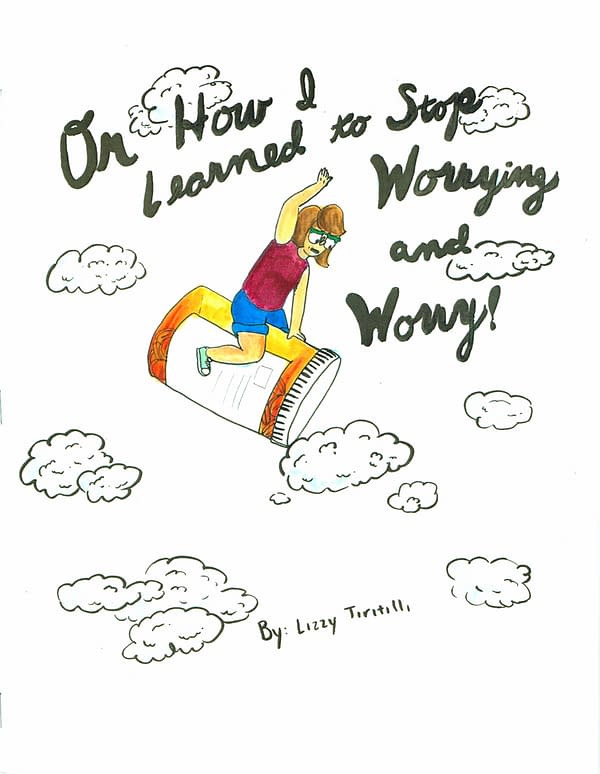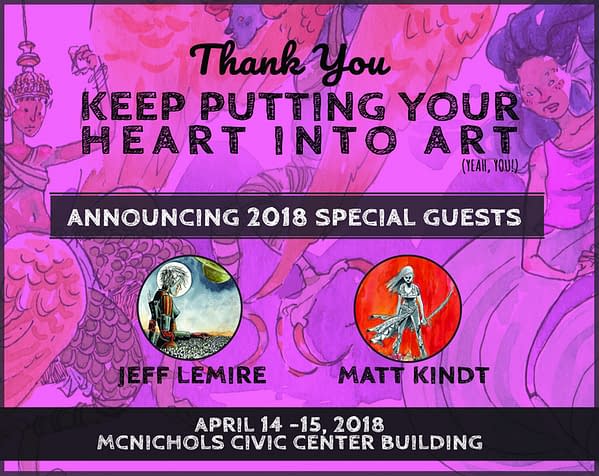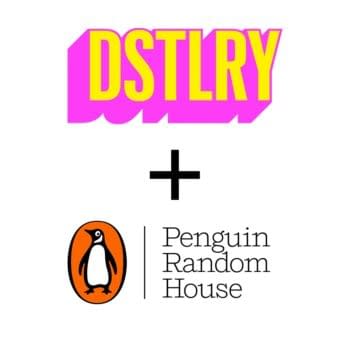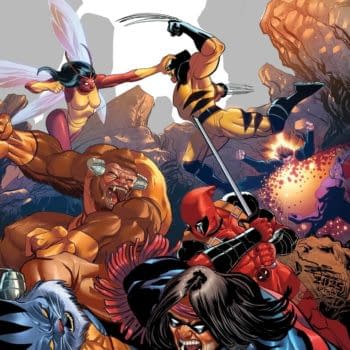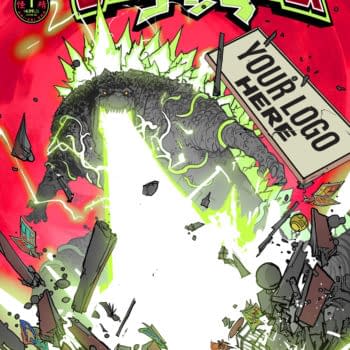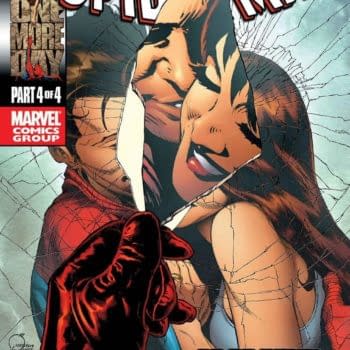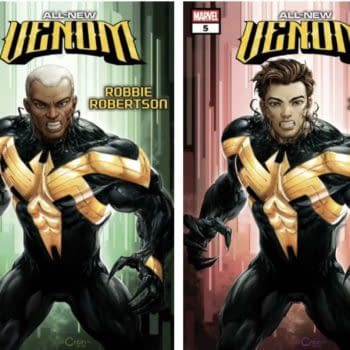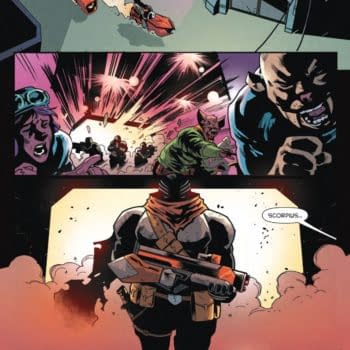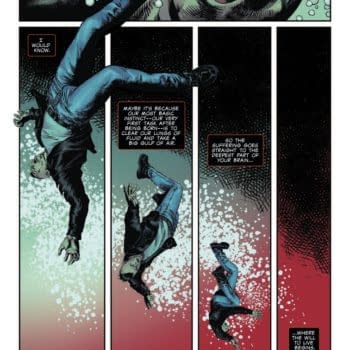Posted in: Comics | Tagged:
Charlie LaGreca – From Founding Denver Comic-Con To Creating DINK!
Neil Greenaway (of Nerd Team 30) writes for Bleeding Cool:
Charlie LaGreca is a man who knows the convention scene in Denver. As one of the founding fathers of the Denver Comic-Con, he helped Colorado get its first taste of a truly epic pop-culture experience. Now, with the Denver Independent Comic and Art Expo (or DINK! for short), he is bringing a more artistic convention experience to the Mile High city. This is a convention focused more on artistic flair, diverse representation, and self published comics. I sat down to talk with Charlie about DINK's new venue, why diversity matters, and his own artistic inclinations.
Bleeding Cool: Can you give us a little bit of background on how you got DINK up and running last year?
Charlie LaGreca: This was just like when I started the Denver Comic-Con. I started it from the ground up, I found the funding, and came up with a vision. The venue was already chosen. They had called me when I was first looking for a venue for Denver Comic-Con. I remember peering into the Sherman Events Center through the windows with Frank Romero and wondering, what is this weird place? We took a tour and it was beautiful, with all the columns. It was not the right fit for DCC, but I knew that we would be back there. It was too beautiful to be missed. I thought that more people in Denver deserved to see it and more artist friends needed to see it. But for Denver Comic-Con we knew it was not the right place. The rest of the convention came together with a lot of love, passion, hard work. Great people, a truly great staff who are just there behind it, who are willing to volunteer and put in the hours. And we got a lot of help. I was calling on the people that I met through DCC, calling on the people that I've met in the comic industry in New York and L.A., calling on old friends. A lot of the people that we had here the first year were friends that we met who have now become more famous. Like Nate Powell, people like that. And for next year we already have Jeff Lemire, who I've known since he was doing tiny little indie comics, he will be one of our guests of honor next year. We just announced him. This has all come together though, really and truly, through a lot of passion and hard work. When I was trying to put together another convention after DCC… I don't consider myself a producer, I consider myself an artist. Building these shows is an art form, so it was time to create another piece of art along with other people.
BC: Is the creation of these shows in your blood then? Having created Denver Comic-Con, and now DINK, do you think that you will feel the need to create other shows in the future?
CL: Wow, that makes me think! (laughs) I can't say that I would ever let DINK go, like letting someone else run it. At least right now I can't see that ever being the case. If this show was ever to take wing and be really flying, if I was having other opportunities, maybe. I would still have to be able to assist with DINK and make sure that it kept its mission. That mission will be maintained, always.
BC: What is the mission you hope to maintain here at DINK?
CL: From the minute you walk through the door, everything that you experience should be independent. There should be independent comics, independent beer. Everything should go from the person who made it to your hand. It should all be independent in some way, with hopefully nothing corporatized. And the reason we want that is because, while we think that corporatization can be good for an artist (to make them profitable) – you also start to see a homogenization. I think that the Walking Dead is a perfect example of that. First, there is this comic. And you love it. And it grows until it gets so big that zombies are seeped into the culture now. They're everywhere! And everyone loves zombies, which is amazing, but it also removes a little bit of the special connection that only you had with the Walking Dead. But we can maintain that connection with a show like this. Enzo Garza is upstairs, and you can go and be in touch with his art at this beautiful moment. And we hope to see that blossom.
There are also logistical missions as well. Like kids get in free, 16 & under. I don't care how big we get. I don't want those kids to be like I was when I was a kid, unable to go because they have no money. I want those kids to come down, get in free, and enjoy a convention. And maybe they can be inspired to create art of their own or at least to support artists.
And then we also have a literacy mission, which has always been near and dear to my heart. We have Camp Comic Book, which has the idea of taking inner city or under-served kids up to the mountains and making sure that they get an amazing experience in the summer. There will be comics, and hiking, and doing fires every night with discussions on the mythology of heroes and villains.
BC: Who do you get in touch with to pursue the educational aspect of that?
CL: I had 2 teachers that were working with me on the Comic Book Classroom who had always wanted to do something with me. And then this amazing property up north contacted us to see if we wanted to work together. So we have this 2000 acre property, right off of a creek, everything is farm to table. Everything that you eat there is grown there. Last year we raised the money to put a deposit down on the site, and this year we hope to raise enough to send 10 kids up there to enjoy it.
BC: There is a lot of talk these days about how the convention model that is currently in place needs replacing. With everything getting bigger, it seems more and more that pop-culture is pushing the comics out of conventions. Do you see DINK as a place for preserving those artists that feel pushed out?
CL: Absolutely! That nails it! Right there. We are here to preserve. We provide a spotlight for the artists who have not been discovered yet, who are new and need help. And also to maintain veteran artists and creators that people may have forgotten about.
BC: I saw R.C. Harvey upstairs. Just to watch him sketch is a pleasure.
CL: Isn't that cool? And we have Mike Keefe, who is a Denver Post editorial cartoonist. I want to keep getting guys like that. They are still out there, doing stuff. Even when they are retired, they're still creating.
BC: Touching on that for a moment, you have Denis Kitchen here as a rather large part of your Cannabis & Comix tour. How did you get hooked up with him?
CL: I was talking to Mr. Phil, our artistic curator, and he knew Denis a little bit from conventions. And we were thinking that he would be the perfect person to bridge that discussion between cannabis culture and comix culture. We wanted it to be classy and not just "Hey, come smoke weed!". We do want people to come and experience cannabis and art. But we also really wanted to discuss what it was like taking your comics to the head shops. What was that like, what was the synergy there? If you are going into a head shop, you probably weren't looking for comics. But the only place these underground comix are being sold is in the head shops. There had to be a synergy there. So we reached out to Denis, and he was a little hesitant at first. We were able to convince him and his wife to come out and now we have become friends.
BC: And then, for this year, how did you get the Hernandez Brothers to come out? They are an amazing set to headline with.
CL: The Hernandez Brothers have been in my sights since DCC2012. I have loved their books for years. Their work is just inspiring and changed the face of comics. I was able to reach out to them, we had some mutual friends in New York. We made it very clear that we wanted all three of them. For us, it was important to have them all. And they agreed! Not only that, then they agreed to give us the art for this year's DINKy award! They are really pleasant, amazing people. We had a great Cannabis & Comix panel with Mario Hernandez and Denis Kitchen yesterday.
BC: How did Mario get involved with the Cannabis & Comix portion of the show?
CL: He wanted to do it! Isn't that cool? He asked. So we just started out with talking about how cannabis had affected his art and his creating of comics. That led to a whole discussion about how the indie distribution model today mirrors the head shop model of the old days, so that was cool. Everything was done off the grid, with money being sent in envelopes and everything under the table.
BC: I think that in the indie comic world, the Hernandez Brothers and Denis Kitchen are both huge names. Do you have any plans for the guests next year?
CL: Yes! we already have announcements for next year! April 14th & 15th, Jeff Lemire & Matt Kindt are our first announced guests. We do have some other really cool announcements that can't be made yet. We are also trying to bring out the weird, quirky people that you might not know about, too. Like this year we brought out the Sucklord. Or the ForeverScape. Guys like that might not fit at a comic convention.
BC: I have been talking to some creators that are here from out of state, and one thing I keep hearing over and over again is that the representation here is amazing. Specifically, a friend from Phoenix walking around said, "There are a lot of women here! And a lot of POC creators. And a lot of trans creators!" He told me that he has never seen this kind of diversity in a convention. Do you feel that the diversity here is an important aspect of the show?
CL: Oh yeah! Now more than ever! With this administration, and the current state we're in, we want to be a voice that is loud and proud for all stripes and colors. Everyone is welcome here, and we want everyone to come. But if you come, you will treat the other people well. That being said, I also love to discover a new viewpoint. I want to see from a trans viewpoint. There is a table upstairs, for Melanie Gillman, and the card on the table just reads "Queer Smut Comics!" In big letters, like this is what you're getting, if you can handle that. And that's what DINK can do. I can have adult comics and erotic comics. And people need to know that. At this show, absolutely you can have kids. But we are not afraid of art, and we will not censor art. This show is all art baby! I want it to be aggressive, and charming, and sexy. Art should be all those things.
BC: I see a lot of 'zines on the tables and other things that might not be considered comics at all, like political brochures. How do you find the artists that are making those books?
CL: That is hard work! Honestly, that is mostly Kelly Shortandqueer. He is the curator of our 'zines. That is very important to us, because we are partnered with the Denver 'Zine Library, they produce the show with us. We raise money for them. Kelly has been involved with 'zines for about 12 years and works with the 'Zine Library, which has one of the largest collections of archival and preserved 'zines here in Colorado. These 'zines are important because its sort of an area that gets forgotten about. it was really big in the '80s and then the '90s with the whole punk rock movement. Now with the internet, I think people are more into blogs than 'zines. But they are still out there.
BC: Everybody speaks very highly of DINK as a show and a lot of my artist friends that have never seen it say that they need to come up and check it out. How do you breed that kind of good will in the artist community?
CL: That is a good question. How do you breed good will? I think that it starts from the top down, but it also needs to come from the bottom up. So I need to be setting a good example and leading by example, but I also need to be learning from those around me and listening to their ideas. If an artist comes here, my job should be to support them as best that I can. And hope that they support me the best that they can. There needs to be a mutual respect. Also, I like to be very connected to my team, so weekly meetings are a big thing around here. On top of that, I go to a lot of conventions. And you can learn a lot from watching others. You see the mistakes of course, and learn what not to do. But you can also see the charm, and try to figure out how they achieved that.
BC: Everyone keeps talking about how this show will keep growing, and it has already undergone a significant expansion from the first year. Do you think that you will need to expand again next year?
CL: We purposefully left ourselves room to expand in the McNichols Building. Aisles were left a little wider than needed, some areas were left open. We have signed a three year commitment here, which is amazing, so we left ourselves some room to grow. But it can only ever grow beyond our means if we allow it to, it should be very organic growth.
BC: For artists and creators that might be interested in learning more about the show, or maybe even submitting to be in next year's show, can they do all that on the website?
CL: Yeah, we are going to get that opened back up right away, so look for that on the website. You can also find us on Facebook. It is a curated show, which helps us to keep new people getting in. And at the end, when we are done picking, we do have a lottery for the last 15% of the floor. So if you are an artist wanting to come to Denver, or if you are in Denver already, please go check it out.







